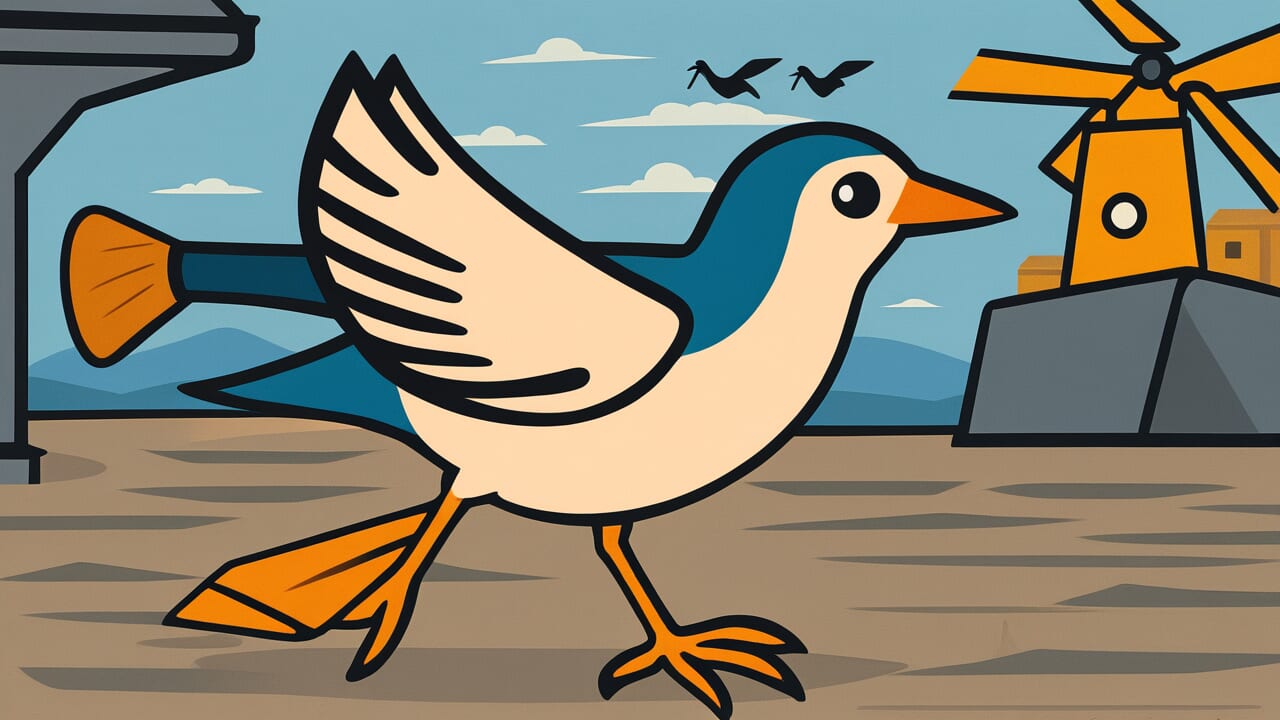How to Read “Threaten a sparrow and lose a crane”
Suzume odoshite tsuru ushinau
Meaning of “Threaten a sparrow and lose a crane”
“Threaten a sparrow and lose a crane” warns against chasing small gains so eagerly that you end up losing something far more valuable.
This proverb applies when people get so focused on trivial benefits that they miss truly important chances and opportunities.
The metaphor is vivid: while you’re making noise trying to chase away a small sparrow, even the precious crane flies away. This image perfectly captures our errors in judgment.
This lesson remains extremely important today. People constantly miss big business opportunities over minor savings.
They destroy important relationships trying to protect petty pride. They lose trust by complaining about small things.
When your heart gets captured by something small right in front of you, your vision narrows. You can’t see what’s truly valuable anymore.
This proverb offers crucial life guidance: always look at the whole picture and never misjudge your priorities.
Origin and Etymology
No clear written records explain this proverb’s origin. However, the structure of the phrase offers interesting insights.
The contrast between sparrows and cranes forms the heart of this saying.
For Japanese people, sparrows are the most familiar small birds. They’ve lived near human settlements since ancient times. Sometimes they were even treated as pests that ate grain from fields.
Cranes, on the other hand, have long been symbols of good fortune. Their elegant appearance represents nobility and luck.
The word “threaten” deserves special attention. It doesn’t just mean chasing away.
It suggests someone desperately trying to gain a small benefit. You focus on the sparrow in front of you, shouting and waving your hands.
All that commotion causes even the crane—the great fortune you could have obtained—to flee. This is the structure of the proverb.
A similar proverb exists: “Catch neither the horsefly nor the bee.” But “Threaten a sparrow and lose a crane” is distinctive.
It expresses the difference in value between small and large through the status difference between birds. This reflects Japanese wisdom in observing nature and connecting it to life lessons.
Usage Examples
- You missed the limited sale while searching for cheaper products—that’s exactly “threaten a sparrow and lose a crane”
- I kept pointing out small mistakes, and my talented employee quit. This is what “threaten a sparrow and lose a crane” means
Universal Wisdom
“Threaten a sparrow and lose a crane” reveals the essential nature of human attention and desire.
Why do we get captivated by small things in front of us and lose sight of great value?
It’s because the human brain is built to react strongly to “what’s here right now.” The sparrow in front of you is clearly visible.
It’s concrete, seems within reach, and you can deal with it immediately. Meanwhile, the crane might be a bit farther away.
You’re not certain you can obtain it yet. This uncertainty distorts our judgment.
There’s an even deeper truth here. When we chase small things, we get the feeling that we’re “doing something.”
Threatening a sparrow shows immediate results. But obtaining truly valuable things often requires waiting. It requires resisting small temptations right in front of you.
This patience is difficult for many people.
This proverb has been passed down through generations because this human trait never changes across time.
In abundance or in poverty, people constantly face choices. And in most cases, they’re drawn to small, visible certainties.
They overlook large, less visible possibilities. Our ancestors saw through this human weakness. They left us this warning in the beautiful form of a bird metaphor.
When AI Hears This
A surprising structure hides between the act of threatening a sparrow and the result of losing a crane. Game theory can explain this through “risk dominance.”
Imagine you already have a crane worth 100 points. Now you’re trying to gain an additional sparrow worth 10 points.
Even if threatening the sparrow has an 80 percent success rate, suppose that action creates just a 15 percent chance the crane will flee.
The expected utility suddenly reverses. Calculate it: the expected value of gaining the sparrow is 8. But the expected loss from losing the crane is 15.
That’s a net negative of 7—clearly an unfavorable gamble.
The human brain focuses more easily on “an additional 10” than on “the 100 you already have.”
Behavioral economist Kahneman’s research shows something contradictory. People should be risk-averse when gaining profits. Yet they become aggressive when facing small additional gains.
This can be called “numbness to the endowment effect.”
What’s even more important is this: the act of threatening the sparrow becomes a signal that disrupts the equilibrium state in the trust game with the crane.
The crane reads the information: “This person becomes aggressive for small immediate gains.” It judges itself to be in danger and flees.
In other words, small greed triggers a chain reaction that destroys great trust.
Lessons for Today
This proverb teaches modern you the importance of “the courage to stop and see the whole picture.”
Our daily lives overflow with small sparrows. Social media notifications, trivial complaints, immediate savings, minor gains and losses.
These things are certainly right in front of you. Dealing with them gives you small satisfaction.
But while you pour time and energy into them, truly important things might be quietly moving away.
What matters is taking a breath before acting. Is what you’re about to chase truly valuable?
What are you sacrificing by pursuing it? This question could greatly change your life.
Modern society demands that we “react immediately.” But wise people know better.
You don’t need to react to everything. The courage to let go of small things is the secret to obtaining big things.
Is the sparrow in front of you really worth chasing? If you raise your eyes a little, you might see a much more wonderful crane.



Comments